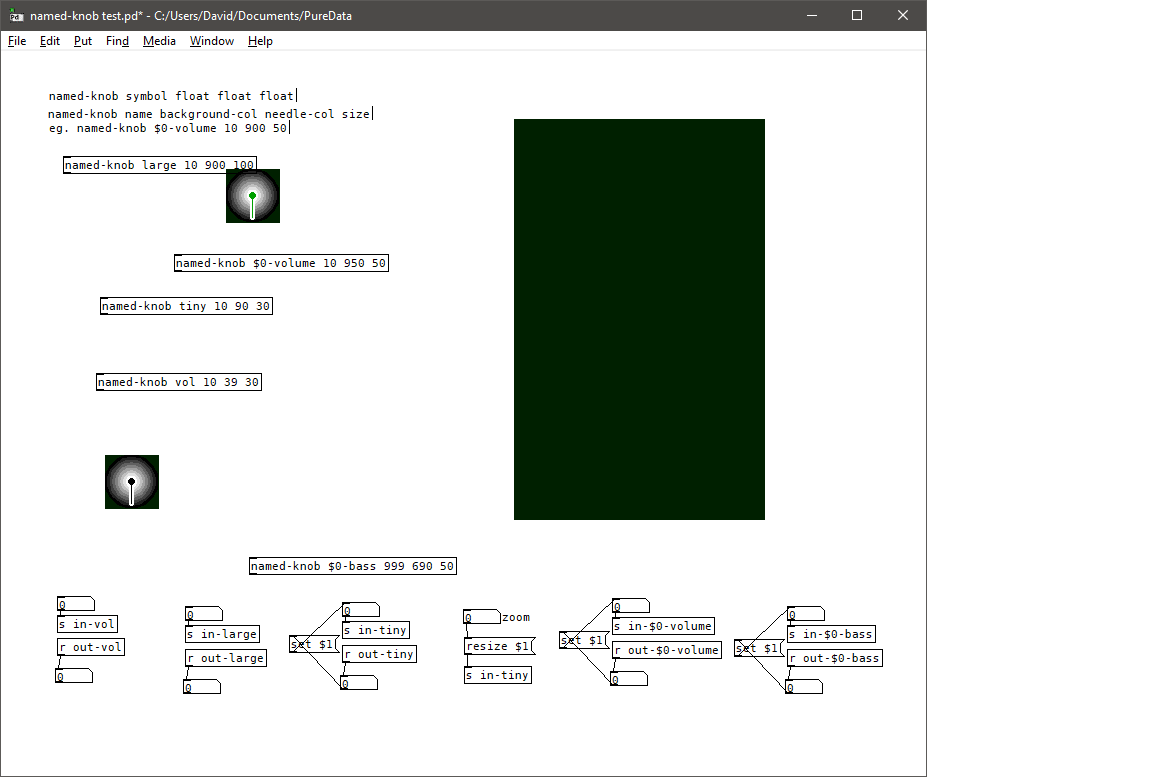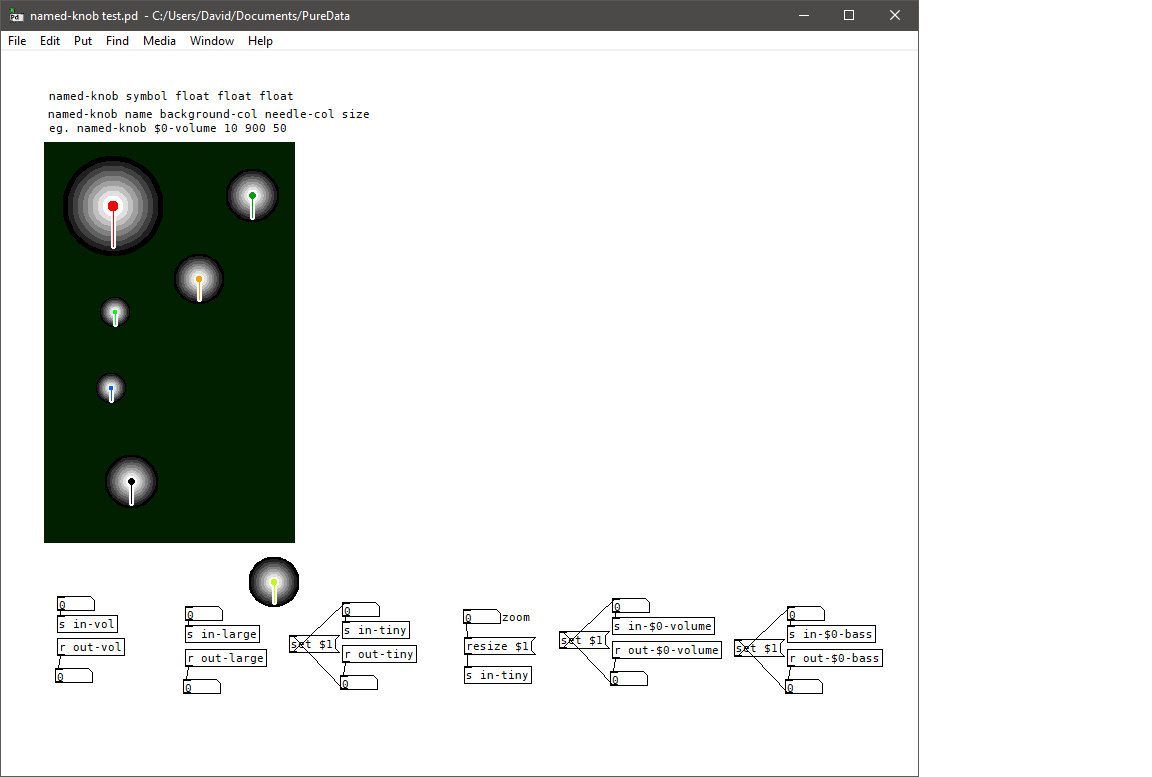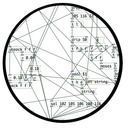-
Vanilla now 0.48 available for testing
-
@LiamG I don't find a changelog anywhere...
-
@EEight Click on "HTML documentation for Pd" in the above link, then chapter 5.1 "release notes" at the bottom of the page.
Very nice that a clear message has been added to delwrite~! (even though it's clicky, but that might be unavoidable).
-
paste power
**5.1. release notes
**
------------------ 0.48-0 ------------------------------It's possible to save and recall "settings" to files, and/or to erase system settings. On Pcs, the settings are now stored in the "user" resource area (before, it was per-machine, and users who weren't administrators apparently couldn't save their settings.)
The expr family (expr, expr~, fexpr~) got an update from Shahrokh Yadegari. I'm not sure when this first came about, but expr now can access "variable" objects as variables inside expressions. Expressions using "if" skip evaluating the argument that isn't used.
New "fudiparse", "fudiformat" objects.
New "list store" object for faster and easier concatenation and splitting apart of lists.
New notification outlet in "text define" so the patch can know when the text is changed.
New "text insert" object.
"delwrite~" now has a "clear" message.
"declare -path" inside abstractions was changed so that, if the declaration isn't an absolute filename, it's relative to the abstraction's directory, not to the owning patch's directory. This might be considered an** incompatible change**; but since the situation with paths declared inside abstractions has always been so confused, I think nobody will have got away without editing patches that relied on it as things changed in the past.
But the biggest changes are under the hood. Pd now can manage more than one running instance, so that it is possible to make plug-ins of various sorts out of Pd and they can coexist with each other. This will allow people to write much better VST plug-ins in Pd. I'm grateful to Carlos Eduardo Batista for much help on this.
The Pd API allows starting and/or shutting down the GUI dynamically while Pd is running.
Another internal change: the pd~ object now communicates with sub-processes in binary by default. This increases the numerical accuracy of signal passing (it should be exact now) and makes the passing back and forth of audio signals much more efficient.
Thanks to much effort by Dan Wilcox and Iohannes Zmoelnig, the compile-and-build system is much improved, especially for Macintosh computers. One visible effect is that language support is finally working in the compiled versions on msp.ucsd.edu.
-
@EEight said:
[...], so that it is possible to make plug-ins of various sorts out of Pd and they can coexist with each other. This will allow people to write much better VST plug-ins in Pd.
Maybe I've missed something but how can you "write VST plugins in PD"? Is there a tool to convert PD patches into native VST plugins?
-
@barbouze https://github.com/pierreguillot/Camomile
@EEight A lot of good stuff.....!
note( [expr] took named variables in extended.... it must have been around for quite a while.... unless this is not "the same thing"? Certainly in 0.46.7...... but undocumented.Yes.... "declare -path" I have never used for that reason. I can't imagine (yet) that the new method will be any better. Paths are a nightmare when sharing. [getdir] was very useful in extended, but bundling and using only sub-folders is probably still the only way.
The environment variables are all sitting there ready to be used...... in tcl "$::sys_libdir" "$::sys_guidir" "$::fileopendir" etc. are all set .....and in the OS too.
"bang-able" objects that query tcl or the os and return the strings directly to an outlet for use in the patch would be useful.... and they existed in extended!Thank you for the analysis, and pointing out the changes
 Very useful......
Very useful......But I would like to change the terminology for Pure Data..... from "un-supported" to.......
Extended..... "finished, final release"
Vanilla...... "supported, un-finished, beta......"
Updating an os or a program is always dangerous.... especially as an "early adopter"....
I suppose the choice depends upon whether one needs some "bleeding edge" attribute, or a useful working tool.
Are Gem and Pmpd, the visual and physical modelling tools, and bp~ (for all but the most technically adept users), consigned to the dustbin of history?
David. -
@whale-av , I knew about Camomille but thought of something different from the words used ^^'
-
I uninstalled 0.47.1 and installed 0.48.0.test1 and tried to open a file of seven placed abstractions but only two appear as the expexted gop objects. (the dark green canvas was moved manually). Screenshot 1
Uninstalled 0.48 and reinstalled 0.47.1 and the file opens correctly. Screenshot 2


-
@Balwyn I think these issues will go through if reported in Pd's mailing list. That's where Miller is posting. There's already a few threads about the new Pd. I don't think that any developer will ever see your post here.
BTW, why did you uninstall Pd-0.47.1 to install 0.48.0? Can't they co-exist in your system? -
@Alexandros my system is win10 and I originally just installed 0.48 assuming it would overwrite 0.47.1 but it didn't, It installed along side it in \bin\bin, which I thought may have been the problem.
I have been having some administrator rights problems with Purr Data installs and had the same problems with the Pd vanilla folders not being deleted during uninstallation and not allowing me to delete them or pd.exe and uninstall.exe until I rebooted to a safemode command prompt. However I think just a reboot would have solved that because there were no files in the directory in safemode this time.So I then reinstalled 0.48 but had the same objects problem and decided to go back to just 0.47.1 for vanilla for the moment
I have Pd-extended, Purr Data and Pd 0.47.1 installed at the momentI'll see what's require to post this on the Pd Mailing List





